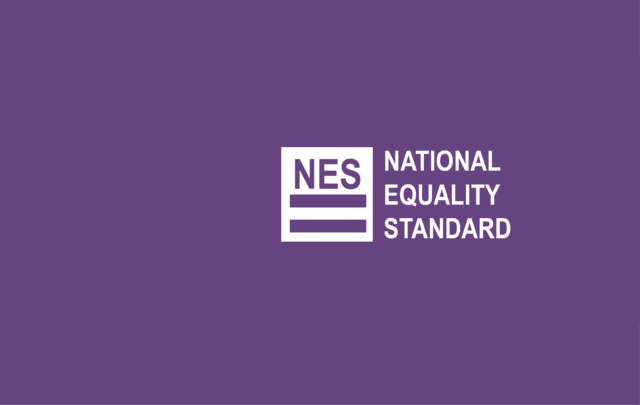Sciensus achieves ISO 14001 accreditation
Sciensus is delighted to announce that, after a year of hard work across multiple teams and departments, we have earned the ISO 14001 accreditation. This globally recognised achievement, given by the International Organization for Standardization (ISO), is evidence of our proactive measures to keep our environmental footprint small, and comply with all of the UK’s environmental legal requirements, including responsible waste management. Daniel Parkes, our Environmental, Social & Governance (ESG) Lead, explains what it took to get here.
A team effort
Sciensus first started working on this accreditation in 2024. It demonstrates our environmental sustainability commitments to our patients, suppliers and partners. As a business, we take environmental processes seriously, and the ISO 14001 is evidence of good practices within this area.
Gaining such an accreditation is only possible when the whole organisation gets behind it. From senior management down, everyone pulled together to ensure we were working towards one goal of ensuring everything was up to international standard. At the heart of gaining the award is our environmental policy which states our commitments to the environment, and how we plan to achieve them. Our ESG strategy incorporates part of this, including our goal to be net zero by 2045.
Preventing pollution and continuously improving our processes has involved identifying our biggest environmental risks, understanding their impact on the environment, and implementing measures to mitigate them. As we set and meet targets, we have ensured that everyone receives the right training, understands their responsibilities, and that our environmental management system is effectively communicated throughout the organisation.

Achieving ISO 14001 certification highlights Sciensus’s commitment to environmental responsibility and sustainable practices. This achievement demonstrates our dedication to reducing our environmental impact and adhering to high standards of environmental management.
Daniel Parkes, Environmental, Social & Governance (ESG) Lead
Thorough processes of accreditation
Gaining ISO 14001 for our head office and national distribution centres required a robust audit including written material and a physical, on-site assessment. This involved making sure all aspects of our environmental policy met regulations, were sustainable and had efficient operational practices. This included waste management and hazardous material management. It’s also not just about what we are doing today, but that we have processes in place to monitor how they continue in the future and improve them where possible.
In waste management, the ISO are looking for a policy in place which highlights what waste streams exist for each site. For example, one of our sites is plastic, paper and general, whilst other sites might have hazardous or clinical waste. Making sure we dispose of each type of waste in a suitable and responsible way is crucial. What can be recycled is recycled and what can’t goes to energy recovery, with any energy transferred back into the National Grid. This is all done with a regulated waste provider and in total less than 1% of our waste goes to landfill.
Continuous improvement
The ISO 14001 has been a fantastic achievement, but we’re not going to stop there. It is the beginning of a continuous process to which Sciensus is committed. We are focussed on our Net Zero targets, and will publish our 2025 Carbon Reduction Plan soon to explain how we are going to get there.
Our ESG achievements in action
Explore our latest achievements, case studies, and news, showcasing how we’re driving sustainable change and improving health outcomes for patients, while making a difference for our people and the planet.
News
Sciensus announces chosen charities for next three years
We’re pleased to announce the Sciensus chosen charities colleagues will be fundraising for over the next three years. As part…

News
Sciensus achieves prestigious National Equality Standard (NES) accreditation
Diversity is a core value for Sciensus and one that drives innovation and excellence in everything we do. With that in…
News
Sciensus contributes to new diversity, equity, and inclusion research paper
A report into the benefits of a diverse and welcoming workplace has recently been published with input from Sciensus. Produced…
